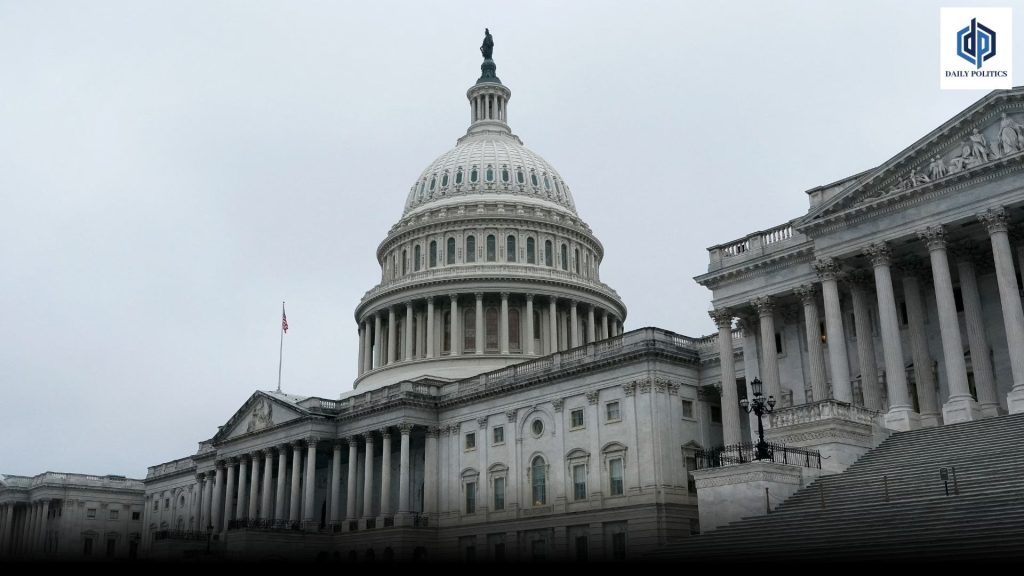On Saturday, US senators commenced discussions on Donald Trump’s “big beautiful” spending bill, a highly contentious proposal that aims to advance significant elements of the president’s domestic agenda while implementing substantial reductions to social welfare programs.
Former President Trump aims to solidify his legacy with the proposed “One Big Beautiful Bill,” which seeks to extend his first-term tax cuts, set to expire, at a staggering cost of $4.5 trillion, while also enhancing border security measures.
As the 2026 midterm congressional elections approach, Republicans find themselves at a crossroads regarding a contentious package that threatens to strip health care from millions of the nation’s most vulnerable citizens while potentially adding over $3 trillion to the national debt.
Late Saturday, the Senate commenced formal debate on the bill, following delays caused by Republican holdouts that postponed what was expected to be a straightforward procedural vote, prompting a reaction from Trump on social media.
In a closely contested decision, senators approved the motion to initiate debate with a vote of 51-49 just hours after the initial call. Vice President JD Vance played a pivotal role in negotiations, engaging with dissenters within his party.
In a significant political move, two Republican senators aligned with 47 Democrats to cast their votes against initiating debate.
Former President Trump has urged his party to expedite the passage of the bill, aiming to have it on his desk for signature by July 4, coinciding with the nation’s Independence Day.
The Democratic Party has expressed strong opposition to the proposed legislation and the agenda put forth by former President Trump, pledging to obstruct the debate surrounding these issues. Their insistence was apparent: the entire bill must be read aloud to the chamber before the commencement of the discussion.
The legislation spans approximately 1,000 pages and is projected to require around 15 hours for a thorough reading.
“Republicans are withholding details about the bill from the American public,” stated Senate Democratic Leader Chuck Schumer. Democrats are insisting that the document be read in its entirety on the floor. “We are prepared to stay here throughout the night if necessary to complete the reading.”
If the Senate approves the bill, it will return to the House for further consideration. There, Republicans can afford to lose only a few votes as they confront significant dissent within their party.
Controversial reductions
Republicans are in a race to counterbalance the staggering $4.5 trillion expense associated with Trump’s tax relief plan. A significant portion of the proposed budget cuts is expected to target Medicaid, the health insurance program that serves low-income Americans.
The Republican Party finds itself divided over proposed Medicaid cuts, a move that could jeopardize numerous rural hospitals and potentially leave approximately 8.6 million Americans without access to essential healthcare services.
The proposed spending plan aims to reverse numerous tax incentives for renewable energy that were established during the administration of Joe Biden, Trump’s predecessor.
On Saturday, prominent Trump associate Elon Musk, who recently experienced a public rift with the president due to his criticism of the legislation, described the current proposal as “utterly insane and destructive.”
“It provides support to outdated industries while significantly harming those that are poised for the future,” stated Musk, the world’s wealthiest individual, who leads electric vehicle manufacturer Tesla and aerospace company SpaceX, among other ventures.
Recent independent analysis suggests that the proposed legislation could result in a significant transfer of wealth from the lowest 10 percent of Americans to the wealthiest individuals.
Recent polling indicates that the bill faces widespread unpopularity among various demographic, age, and income groups.
The House has already approved its version, but both chambers must reach a consensus on the exact text before it can be enacted into law.














